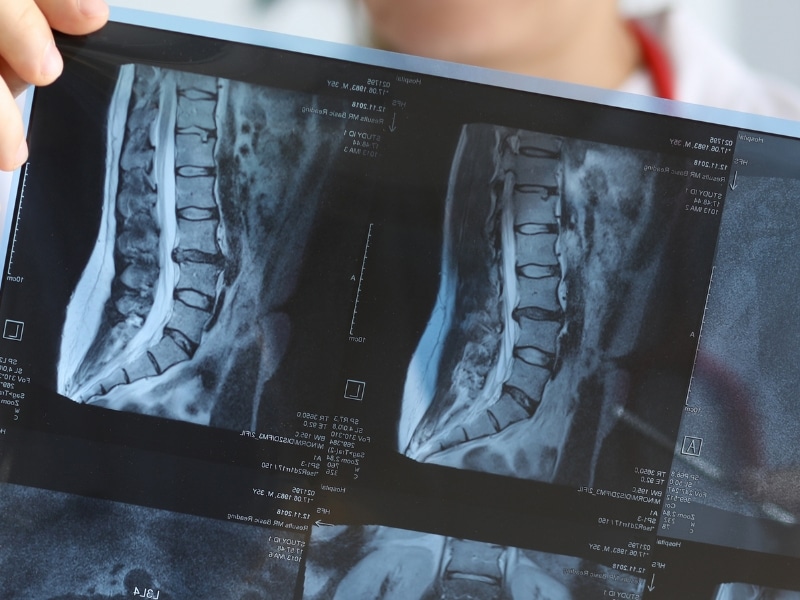There have been several reported long-term effects of legionnaires’ disease. These include fatigue, neurologic and neuromuscular symptoms, and post-traumatic stress disorder. If left untreated, Legionnaires’ disease can become life-threatening. Those who suffer from it in Las Vegas often face expensive treatments and long recovery times. The disease is caused by exposure to Legionella bacteria, which is commonly found in poorly maintained water sources such as hotels, spas, and gyms.
If you have been affected by Legionnaires’ disease due to the negligence of a property owner who failed to maintain his or her water sources, you may be able to hold him or her accountable under premises liability laws. A Legionnaires’ disease lawyer in Las Vegas, Nevada can assess your case and determine the extent of damages you’re entitled to.
What Is Legionnaires’ Disease?
Legionnaires’ Disease is a type of pneumonia caused by a bacterial infection. The bacteria responsible for this infection is called Legionella. Typically, the Legionella bacteria are inhaled when exposed to contaminated water or soil. In some instances, Legionella exposure may result in milder illnesses such as Pontiac fever. However, if left untreated, Legionnaires’ Disease can be fatal and lead to respiratory or organ failure. Those with weakened immune systems, older adults, and smokers are more susceptible to complications from Legionella exposure.
Legionnaires’ disease is typically contracted in places such as hotels, hospitals, or offices where the bacteria have contaminated the water supply. Sources of the disease include air conditioning systems, humidifiers, spa pools, hot tubs, and infrequently used taps and showers.
You generally will not contract Legionnaires’ disease from drinking water containing the bacteria, contact with infected individuals, or exposure to bodies of water such as ponds, lakes, and rivers.
Legionellosis is the term used to refer to either Legionnaires’ disease, which is the pneumonic form of a legionella infection, or Pontiac fever, which is the non-pneumonic form.
Symptoms of Legionellosis
Pontiac fever is a short-lived illness similar to the flu that typically lasts for 2–5 days. The symptoms include fever, chills, headache, fatigue, and muscle aches. There have been no reported fatalities associated with this type of infection.
Legionnaires’ disease has an incubation period of 2 to 10 days, and sometimes up to 16 days in certain outbreaks. In the beginning, symptoms include fever, loss of appetite, headache, malaise, and lethargy. Some people may also experience muscle pain, diarrhea, and confusion. An initial mild cough is common, and up to 50% of patients may produce phlegm. Blood-streaked phlegm, or hemoptysis, occurs in about one-third of patients. The severity of the disease can range from a mild cough to a rapidly fatal pneumonia. Death can occur due to progressive pneumonia, respiratory failure, shock, sepsis, and multi-organ failure. Patients with existing health conditions or compromised immune systems are more likely to suffer severe symptoms.
Typical symptoms of Legionnaires’ Disease include:
- Shortness of breath
- Cough
- Chest pain or discomfort, especially when you are breathing or coughing
- An elevated temperature
- Symptoms similar to those of the flu
Legionnaires’ Disease Treatment
If you are experiencing pneumonia-like symptoms, it is crucial to seek medical attention immediately, as patients with Legionnaires’ disease need antibiotic treatment after diagnosis. The disease can be treated effectively with antibiotics, but it can quickly progress to pneumonia, which may require hospitalization for a full recovery. If left untreated, it can be life-threatening.
Although Legionnaires’ disease can be treated successfully in many cases, even healthy individuals may still need to be hospitalized. Early detection and diagnosis are essential in increasing the success rate of treatment, shortening the recovery period, and preventing serious long-term complications.
Treatment at a Las Vegas hospital may include antibiotics administered intravenously, oxygen through a face mask or nasal tubes, or a machine to aid in breathing. You may be able to take antibiotic tablets at home once you start to feel better. Antibiotic treatment usually lasts between one and three weeks.
How Long Can Symptoms of Legionnaires’ Disease Last?
How long symptoms of Legionnaires’ Disease lasts depends on the person. Typically, with treatment, most people start to feel better in about a week, and full recovery can be expected to take about 2–4 months. This is not true for everyone, however. Some individuals may report symptoms of legionnaires’ disease persisting for several months or years after the disease has been expelled.
Possible Long-Term Impact of Legionnaires’ Disease
It’s not uncommon to hear about disease outbreaks and the survival or death of individuals affected by them. What’s often overlooked is the possibility of long-term health complications for survivors. Even though it’s common for those who have contracted legionellosis to experience long-term effects, these are rarely discussed.
A study conducted in the Netherlands followed the well-being of 122 individuals who survived a massive outbreak that claimed the lives of 32 people. The study discovered that many survivors had long-lasting conditions that persisted for several months beyond their initial diagnosis, treatment, and hospital discharge.
Fatigue
Fatigue is a constant feeling of exhaustion, burnout, or lack of energy that can affect anybody, whether physically or mentally. Even though it may sometimes be confused with tiredness or sleepiness, fatigue is a different and more severe condition that can lead to a lack of motivation and energy. Many medical conditions can cause fatigue, ranging in severity from mild to serious.
According to the study, 75% of people infected by bacteria experienced fatigue even after successful treatment. It’s unclear whether the disease caused the fatigue or if it resulted from the experience of pneumonia in general. However, it’s evident that fatigue is a significant risk factor for those who recover from Legionnaires’ disease.
Neurologic Symptoms
Neurologic symptoms are often linked to Legionnaires’ disease. These symptoms can affect the brain and include confusion and difficulty speaking due to muscle weakness. Patients may also experience altered consciousness, hallucinations, or delirium. After treatment, 66% of the patients in the study reported experiencing memory loss and difficulty concentrating.
Neuromuscular symptoms have also been reported, as well as post-traumatic stress disorder (PTSD). 63% of the participants in the study reported long-term muscle weakness or general aching.
According to the study, approximately 15% of people reported experiencing symptoms of PTSD. This condition is related to mental health and is frequently triggered by a traumatic event, either experienced or witnessed. Some common symptoms include flashbacks, nightmares, severe anxiety, and uncontrollable thoughts about the event. While it is typically associated with those who have experienced trauma, it can also affect those who have gone through a serious illness.
Can You Recover From Symptoms of Legionnaires’ Disease?
Some people can recover from symptoms of Legionnaires’ Disease, but others continue to experience symptoms indefinitely. In the study mentioned earlier, many individuals had reported experiencing a variety of symptoms that had significantly impacted their everyday lives. Unfortunately, with the passage of time, the likelihood of improvement was diminishing. While some may have still seen an improvement in their symptoms, the chances of this happening decreased as more time passed since the outbreak.
Factors Affecting Recovery
Most individuals with mild to moderately severe Legionnaires’ disease tend to recover completely. However, the duration of recovery may differ based on the severity of the condition, the presence of any risk factors, the patient’s fitness level, promptness of treatment initiation, and the potential development of complications. These factors can influence the chances of suffering long-term symptoms. In some cases, it may take up to six months to fully recover. It is fairly common to experience side effects of Legionnaires’ Disease, most commonly a lack of energy, for several months after contracting the illness.
Living With Long-Term Effects of Legionnaires’ Disease
It’s possible for some individuals to endure side effects for an extended period, or even indefinitely. Fatigue and a lack of energy may persist for several months or even years.
There is no conclusive evidence that those who participated in the study suffered lasting side effects for years. However, under many circumstances, symptoms that persist for 17 months could be permanent.
This study emphasizes the importance of avoiding outbreaks of Legionnaires’ disease whenever possible. By taking preventative measures and ensuring that all water systems remain safe, we can prevent Legionella and other harmful bacteria from reaching dangerous levels. This applies to both household and business water systems, with the latter being at a higher risk.
Can Legionnaires’ Disease Cause Permanent Damage?
Legionnaires’ Disease is capable of causing permanent damage. This disease has been linked to changes in brain and body functions, including stress response, memory, concentration, insomnia, and an increase in intrusive thoughts. In some rare instances, the damage caused by Legionnaires’ Disease can lead to seizures.
Hotel Owners and Liability in a Legionnaires’ Disease Lawsuit
Hotel owners and operators have a legal duty to ensure the safety of their guests. The law recognizes that they must take reasonable steps to prevent any hazards that could cause harm. This includes being constantly vigilant for risks that could endanger guests. One such risk is Legionnaires’ disease, which can be caused by poor maintenance of pipes and water storage areas.
Therefore, it is essential for a responsible and ethical hotel owner or operator to conduct a risk assessment of their facility and maintenance program. This should involve monitoring and testing of the water supply to protect guests from exposure to Legionella bacteria. Failure to carry out a thorough investigation could be seen as willful ignorance and may result in legal liability and damages for any injuries sustained by guests or other foreseeable victims.
FAQs About Legionnaires’ Disease
Can You Get Legionnaires’ Disease From Natural Water Sources?
It is unlikely that you will contract Legionnaires’ Disease from natural water sources, but still possible. Typically, concentrations of Legionella bacteria found in natural water sources are too low to cause infection.
What Is the Difference Between Legionnaires’ Disease and Pontiac Fever?
While Legionnaires’ Disease is a serious illness that can lead to a serious form of pneumonia that can cause death if left untreated, Pontiac Fever, which is caused by the same bacteria, is a milder illness that produces flu-like symptoms and typically goes away on its own after a few days.
When Should I Worry About Legionnaires’ Disease?
If you start developing symptoms of pneumonia, or you know there is a legionnaires’ outbreak in your area, it is important that you contact a healthcare provider as soon as possible. The sooner you get diagnosed with the illness, the sooner you can begin treatment, thus increasing your chances of survival and a full recovery.
Is Legionnaires’ Disease a New Disease?
The disease was discovered during an outbreak in 1976 in Philadelphia, largely affecting people who had attended an American Legion convention, however, there have been confirmed cases of this disease as far back as 1947.
Contact an Experienced Attorney Today
If you or a loved one contracted Legionnaires’ Disease due to another party’s negligence, and you suffered complications, you may be entitled to compensation. An experienced Legionnaires’ Disease attorney will go over the facts of your case and assist you in determining the value of your claim.
Legionnaires’ Disease attorney George Bochanis will fight to ensure your rights and best interests are represented in the compensation you receive. Contact our law firm today to get started. We offer free consultations.





